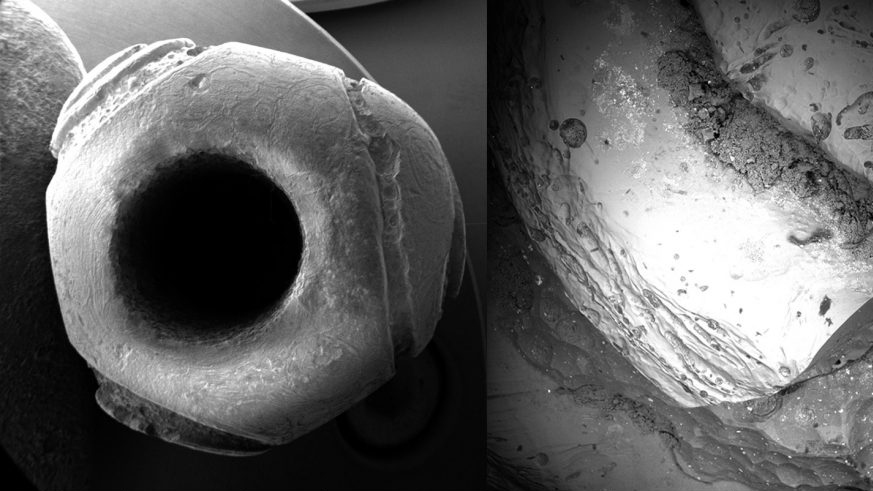Analytical Microscopy Service
Active since 2019, the Analytical Microscopy Service works in synergy with other museum services and departments to enhance, protect and document museum artifacts and materials, and those temporarily entrusted to the Museum of Civilizations for purposes of study and analysis, by superintendencies, universities and other Italian and international institutions.
Instrumentation:
- Scanning electron microscope (Tescam VEGA 3) of the latest generation equipped with EDS microanalysis probe (Oxford) and dedicated computer equipment;
- Sample metallizer (Agar Sputter Coater);
- Optical microscopy in reflected and transmitted light (Leitz Laborlux and Olympus BX60 metallographic microscopes with Nikon EF13 camera, Leica MZ 12.5 microscopes with Leica DC500 camera, Nikon SMZ1000 with camera, Wild Heerbbrugg M3Z microscope, Leica CLS 150 XE fiber optics);
- Thin section cutting and preparation equipment (Leica 1600 microtome, Buheler Isomet Low microtome, Mecapol grinding wheel);
- Computer equipment for image acquisition from microscopes and subsequent processing.
The SEM service will soon be available for collaborative activities with other Italian and international research institutions and third parties, according to regulations currently being finalized.
Personnel:
Francesca Alhaique, Anthropologist, head of the Analytical Microscopy Service
+39 0654952236
Francesca Candilio, Anthropologist
+39 0654952257
With the collaboration of:
Luca Bondioli, Anthropologist, formerly with the Ministry of Culture
Daniela Ferro, Researcher, formerly with the National Center for Research
Current collaborations:
- Superintendency for Archeology, Fine Arts and Landscape of the Marche;
- Department of Environmental Biology, Sapienza University of Rome;
- Laboratory for the study of Diet and Ancient Technology (DANTE), Sapienza University of Rome;
- Department of Cultural Heritage, University of Bologna;
- Department of Chemistry and Geological Sciences, University of Modena and Reggio Emilia;
- Skeletal Biology Research Centre, School of Anthropology and Conservation, University of Kent, UK;
- Institute of Geological Sciences, Polish Academy of Sciences, Kraków, Poland;
- Institute for Geoscience, Goethe-Universität Frankfurt, Frankfurt am Main, Germany;
- Department of Anthropology, University of Kansas, Lawrence, USA.

